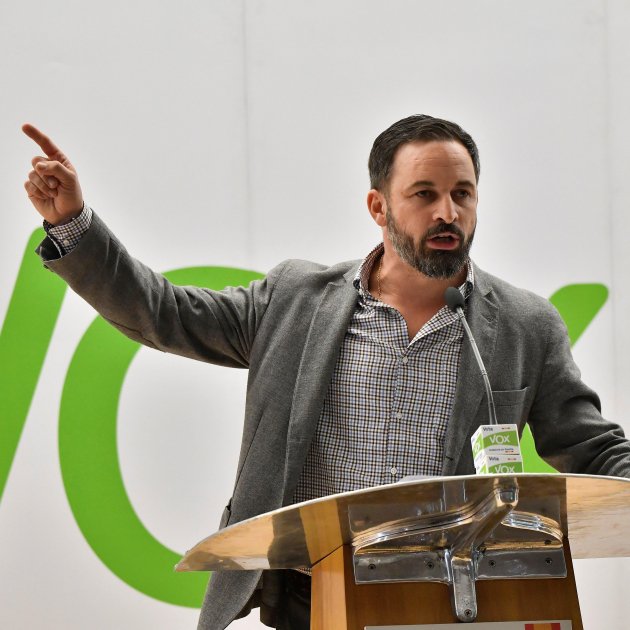Pablo Casado, Albert Rivera, Inés Arrimadas... They've all snatched the focus away from their respective parties' candidates during the campaign, which ended this evening, for Sunday's Andalusian election. The aim was to scrape votes from each other and to take the odd one from PSOE, but also to avoid Vox hogging the votes from the right wings of their parties.
As such, their rhetoric has taken a rightwards turn. This was clear, for example, in Casado's words stoking xenophobic attitudes in Granada or ceaselessly defending the flag (links in Catalan).
Meanwhile, Vox themselves promised this evening, from the banks of the Guadalquivir, that they will "make history" and leave "all those who've scorned [them] with their mouths wide open" by entering the Parliament. In a ceremony full of "viva España"s and the odd insult towards current president of Andalusia, Susana Díaz, Vox's supporters claimed to be the "resistence" which has started the "reconquest".
With its xenophobic and radical nationalist rhetoric, the far-right party is threatening to win up to four seats according to the latest surveys. This could see them getting up to five times as many votes as they did in the last Andalusian election in 2015, when they didn't even get 0.5% of the total.
If there's one factor which has given Vox this boost, at least at the national level, it's been its fight against the Catalan independence process. A process which, surprisingly for an election on the other side of peninsular Spain, has fired up the campaign from beginning to end. Catalonia has come up day after day in events held by the unionist parties, turning a regional election into a dry-run for the next general election.
Catalonia has been wielded as a weapon to criticise Pedro Sánchez for talking to the pro-independence movement, to attack the Catalan government over this week's strikes by public workers and to highlight inequalities in terms of investment around Spain. Albert Rivera, Ciudadanos' leader, even called people to vote for his party as a way of opposing Catalan nationalism.
